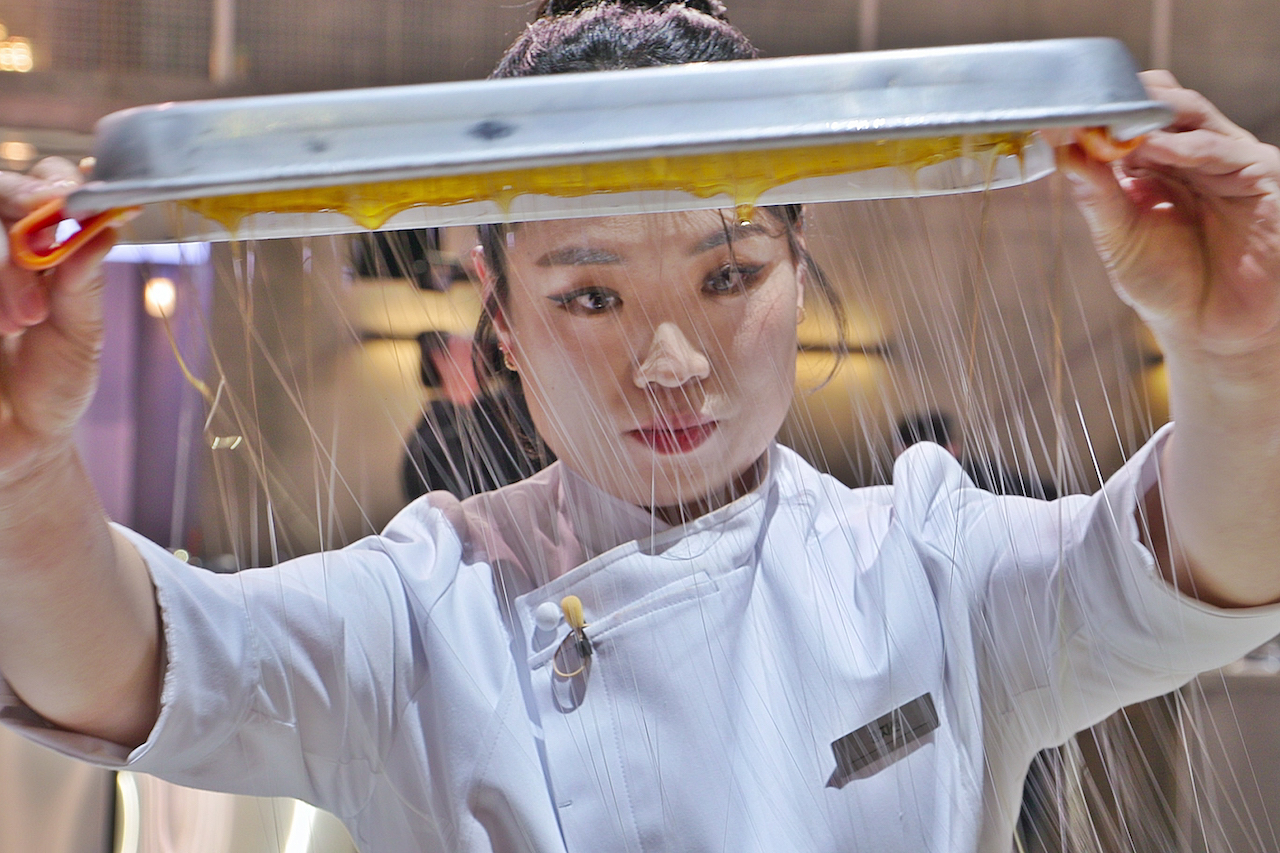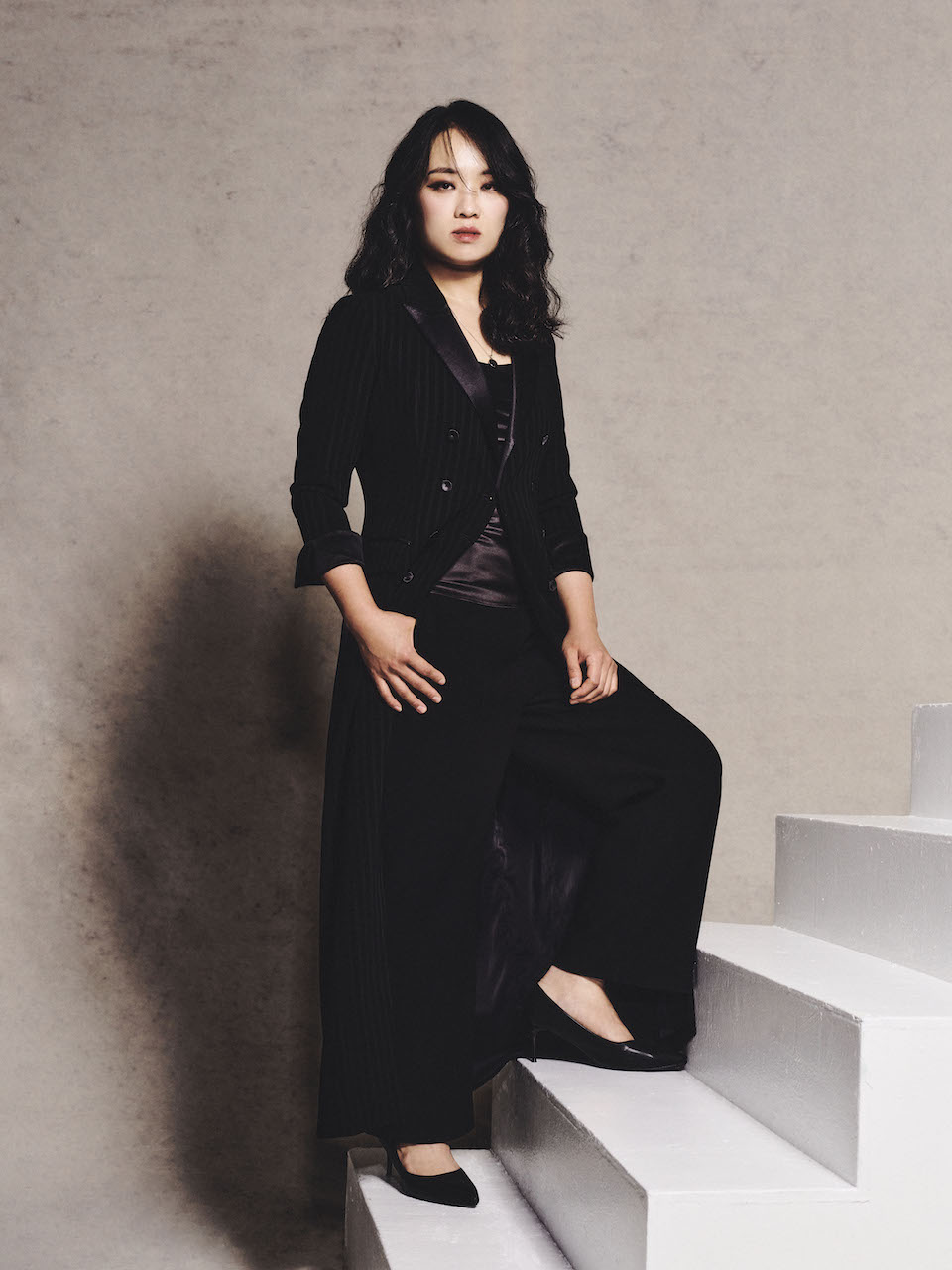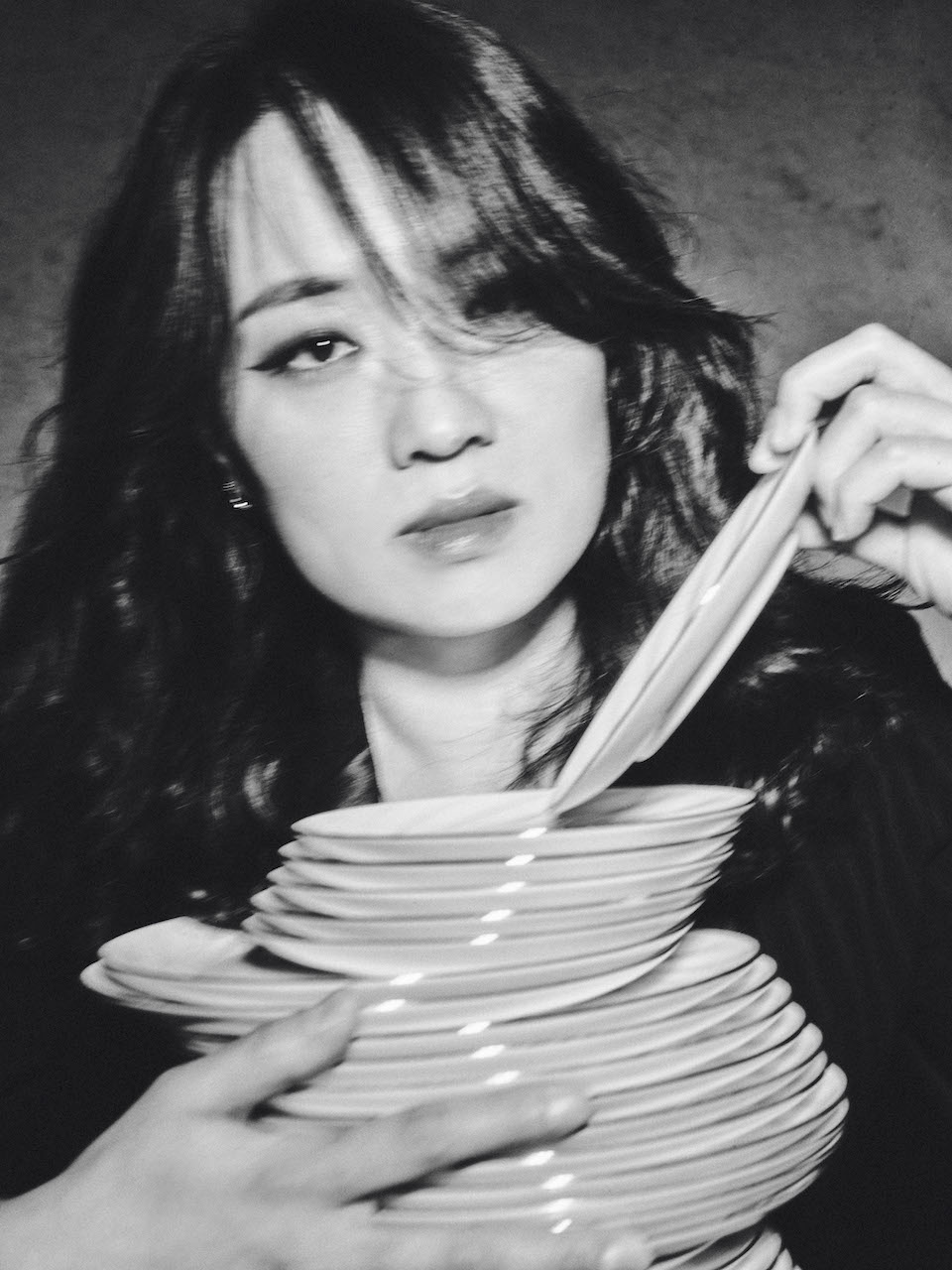As the lights dim and cameras roll on the set of Culinary Class Wars, viewers across Korea are captivated by the intensity and drama of the competition. But behind the screens, amidst the heat of the kitchen and the pressure to perform, chefs are living their culinary dreams, facing immense challenges and creating dishes that push their limits. One such chef who stole the spotlight in this competitive arena is Chef Jung Ji Sun.

A Chinese cuisine specialist and owner of her own restaurant, Chef Jung participated in Culinary Class Wars with a blend of curiosity and determination. For her, the show wasn’t just a stage to showcase culinary skills—it was an opportunity for growth and reflection, a rare chance to step outside the daily grind of running a restaurant and immerse herself in the boundless possibilities of cooking.
Chef Jung entered the competition not for fame or the thrill of the challenge alone, but for something deeper. She had always been committed to her restaurant and creating dishes that sell well to customers. Yet, there were always the ‘what if’ dishes—the imaginative, unconventional creations that couldn’t be served in her restaurant due to practicality. Culinary Class Wars offered her a platform to explore these concepts and test her culinary creativity in ways she hadn’t been able to before.

She shared, “The range of cooking is endlessly wide, and I saw this competition as a chance to dive deeper into it. This is why I decided to join. There are dishes that can be sold and others that exist only in my imagination, and I wanted to explore both sides.”
As a chef-restauranteur, the idea of public defeat carried a certain weight, but she viewed it as part of the learning process. “The idea of losing was scary,” Chef Jung admits, “but I’m still learning. I wanted my staff to see my strong will and enthusiasm, no matter the outcome.” Her mindset was clear—if her team saw her tackle such a challenge with strength and passion, they, too, would feel inspired to persevere in their own culinary journeys.

Among the many moments during the competition, one stood out for most viewers: the ba si (caramelised candied floss) that Chef Jung made during her face-off with “Goddess of Chinese Cuisine”, Chef Eun Young Park, where she magically crafted the floss to top off her dish of dried radish leaves.
“It has to be ba si!!”she exclaimed during our interview, when we asked about a dish that she made during the competition that she was particularly proud of.
“Behind the glamour of Chinese cuisine, I noticed the subtlety of the dish. It may seem simple, but the focus and intensity behind it were remarkable. As a Korean chef specialising in Chinese cuisine, I wanted to showcase how I could express this style.”
For Chef Jung, her work on this dish was more than just a technical success—it was a representation of her identity as a Korean chef with a deep understanding of Chinese cuisine. It was also a moment of personal reflection, as the competition gave her a rare opportunity to pause and look back on her culinary journey. “This experience allowed me to reflect on my life and realise how fiercely I’ve lived.”

Despite her individual accomplishments, Chef Jung found the team challenge particularly challenging. As the head of her own kitchen, collaborating with other owner-chefs — each with their own vision and leadership style — proved more difficult than anticipated. “If I had the chance to do it again, I would want to perform better, and it remains something I regret.”
Chef Jung’s dedication to her craft extends beyond the competition and her restaurant. She regularly travels abroad to study global culinary trends, visiting local markets, grocery stores, and even dishware shops as part of her routine. To her, creativity in the kitchen isn’t just about the ability to innovate—it’s about continuous learning. “Creativity is a result of effort. I study, I eat, and I watch and observe. Trends keep changing, and you can’t keep up without constant learning.”
Her approach to creativity reveals why she excels in competitions like Culinary Class Wars. It’s not just about talent or experience—it’s about discipline and the relentless pursuit of knowledge.

As Chef Jung reflected on her time in Culinary Class Wars, she spoke of the broader impact the show has had on her and the restaurant industry. “The industry has been struggling, but thanks to this competition, the restaurant industry seems to be reviving, and it feels like everyone is smiling again,” she shares. For her, the show isn’t just about individual chefs—it’s about elevating the entire culinary scene and showing the world the resilience and creativity of chefs in Korea.
“My style of Chinese cooking hasn’t changed, and it won’t. I’ll continue breaking stereotypes and bringing out the dishes I learned during my time studying in China,” she emphasised. Through the competition, she also hopes to send a message to aspiring chefs: “This is how I’ve persevered, and I hope you do too. Dreams are meant to be achieved. I’m also happy to see that Culinary Class Wars has contributed to increasing recognition and development of the restaurant industry and chefs.”
Chef Jung runs the Chinese restaurant chain Tian Mi Mi,which has outlets in Hongdae and Gangnam.
____
Story by: Jocelyn Tan
Photos by: Netflix, Korea
